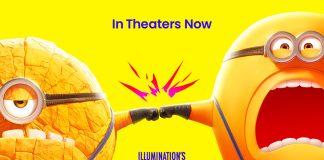Directors’ trademarks is a series of articles that examines the “signatures” that filmmakers leave behind in their work. For this iteration, we are examining the works of Penny Marshall as director.
Carole Penny Marshall was an actress, producer, and director who first became famous from her portrayal of Laverne DeFazio in the hit sitcom Laverne & Shirley. You can find more information about her early life here. After her run portraying Laverne, Marshall tried her hand at directing. Marshall got her first chance at directing a feature film when production issues caused Howard Zeiff to leave the production of a film that would later become Jumping Jack Flash. Unfortunately, this 1986 film did not resonate well with critics, but found moderate success at the box office.
In 1988, Marshall released her next film as director. Big catapulted lead actor Tom Hanks to stardom, and became a smash hit at the box office. The film was very well received by both audiences and critics, and Marshall became the first woman to direct a film that grossed over $100 million. Marshall’s next film was 1990’s Awakenings. This film also received accolades from both audiences and critics, and found success at the box office. It was nominated for an Oscar for Best Picture.
Marshall’s follow-up was 1992’s A League of Their Own. This film became the second smash hit in Marshall’s filmography, and was also well received by audiences and critics, but not to the extent of her two previous releases. In 1994 Marshall directed Renaissance Man starring Danny DeVito. Critics were not impressed, and the film did not make a profit in theaters, making it the first flop of Penny Marshall’s career as director.
The next film she directed was The Preacher’s Wife, which was released in 1996. This film received mixed reviews, and did not meet expectations at the box office. The final feature film directed by Penny Marshall was 2001’s Riding in Cars With Boys. This film also received mixed reviews, and performed poorly at the box office. Penny Marshall moved on to becoming a producer, and went back to acting in several small movie and television roles, but did not direct another feature film. Sadly, she passed away in 2018
So the question posed is, if you are watching a Penny Marshall film and you don’t know it, what are the things to look for that would identify it as such? Here are five of Marshall’s trademarks as director, in no particular order:
Finding Fulfillment
Penny Marshall became a filmmaker through non-traditional means. She doesn’t have an education in film, wasn’t a study under any acclaimed director, and didn’t have any experience directing when she started except for a few television episodes. Her approach is more collaborative. What this means is that Penny Marshall’s approach to directing does not have auteur tendencies. Her films don’t exude an overbearing sense of a particular style or vision. Instead, her films tend to adhere to traditional cinematic qualities in construction and execution.
First and foremost is the fact that many of her protagonists end up finding fulfilment at the end of the film, but not in the way they had hoped or wanted. Starting at the beginning with Jumping Jack Flash, the main character Terry wants more excitement in her life. Despite being personable, she doesn’t have a significant other, and her boring job doesn’t allow her to be herself. When she unknowingly starts helping a secret agent, she gets drawn into a dangerous and exciting adventure. Through this experience, Terry finds confidence to be herself, not to mention a new boyfriend. In Big, the main character is a child and is tired of being treated like one. He is magically transformed into an adult, and suddenly has to deal with the pressures and complexities of adulthood. This eventually makes him realize how much he misses his childhood and asks to be transformed back into who he is supposed to be.
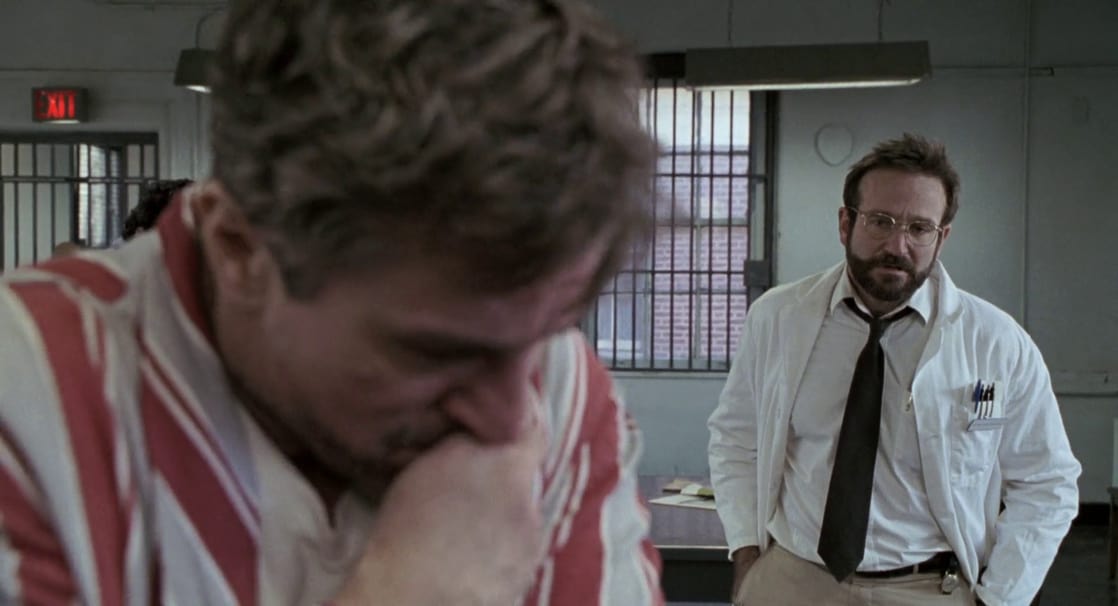
At the beginning of Awakenings, Dr. Sayer is desperate to find a job. He interviews for the position of a neurologist attending catatonic patients at a hospital, despite having no real experience. Initially the stress and inability to help the patients causes him to question his decision, but gradually he works hard to earn the trust of his patients and peers, eventually coming to realize how much of a difference he is able to make for them. In A League of Their Own, the manager of the Rockford Peaches is Jimmy Dugan, an alcoholic ex-professional player. His alcoholism took away his career, and he regrets not being able to play baseball longer. At first he sees the job as a waste of his time, but eventually comes to enjoy the role and even turns down an offer to be the manager of a men’s team to remain in it.
In The Preacher’s Wife Henry Biggs is a pastor who finds himself drowning in a pool of problems associated with his congregation and family life. He wishes for some help, and is granted an angel named Dudley to assist him. Biggs doesn’t believe Dudley at first, and refuses to accept his help (at one point even getting angry and throwing him out). But by the end of the film it is clear to see how Dudley was able to give Biggs the encouragement and direction he needed to make a difference. And in Riding in Cars With Boys, Bev becomes a teenage mother and initially resents her son because he stole her childhood from her. As her son Jason grows up, he too comes to resent her because of her attitude towards him. But when Jason is leaving her for college, she comes to realize how he was the best thing that had ever happened to her.
Singing & Dancing
Marshall’s mother was a dancing instructor who operated her own studio in New York City. Marshall attended her mother’s classes from a young age and even participated as part of a semi-professional precision dance troupe organized by her mother. The experience she gained at a young age as a dancer and performer would make its way into the choreography of all of her films. All of her films have at least one scene where characters are dancing and singing. Most of the time the singing and dancing happen in two separate scenes, but sometimes they happen simultaneously.
In Jumping Jack Flash, the film is titled after the famous song because the secret agent uses a reference of the song as the security password to a communications account. Terry plays the song and sings along to it, listening for clues as she tries to figure out the riddle he left her. Later in the film, Terry has to infiltrate the British embassy while they are having a ball to celebrate the Queen’s jubilee. Terry dances during this scene. The most famous scene in Big is when Josh and toy store magnate Mr. MacMillian dance on a giant keyboard in a toy store. Josh proves who he is to his best friend Billy by singing a rap that only they would know.
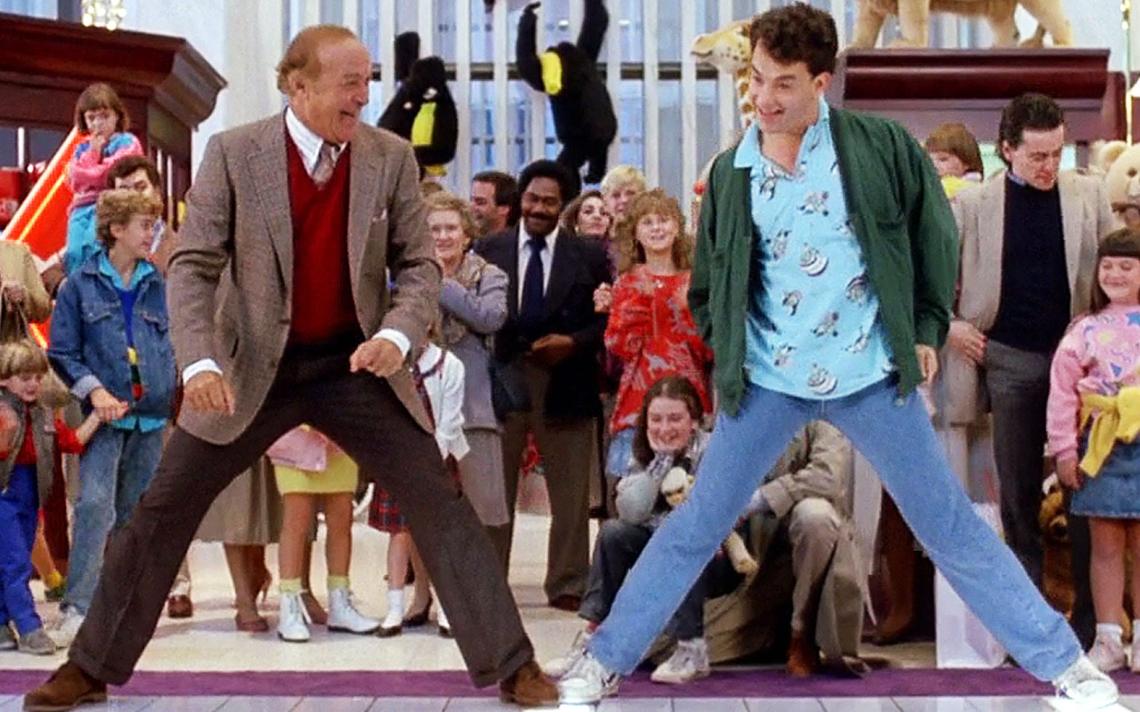
In Awakenings after Dr. Sayer administers treatments to the catatonic patients and they become themselves again, he takes them on a field trip to a dance hell. Here his patients gleefully dance and sing. Later on, one of the patients is playing the piano at the hospital and another patient sings along. The dance scene in A League of Their Own occurs when the team evades their chaperone and decides to have a night out on the town. They end up at a roadhouse where they sing and dance and have a good time. Later on, as the team bonds, Evelyn creates a team song which they later sing during their reunion at the end of the film.
Rago’s class in Renaissance Man decides to show him how much they have learned in his class by performing a dance and rap discussing various plot details of Hamlet. The dance scene in Riding in Cars With Boys has a different tone entirely, and takes place during Bev’s reluctant wedding to Ray. While her family joyfully celebrates by dancing, Bev watches on in disappointment. In the same scene we see Fay going onto the stage to sing a love song to her boyfriend Bobby, and then gets booed off of it.
Betrayal & Redemption
One thing you will notice in Marshall’s films is that despite adhering to traditional cinematic qualities, her films are devoid of major antagonists. There is usually one minor antagonist who works against the film’s main protagonist and the supporting characters, but they aren’t the main cause of the challenges the protagonist faces. Instead, the protagonist is usually fighting against an unseen force; either society, wealth inequality, gender discrimination, the challenges of growing up, or in the case of Jumping Jack Flash – some sort of secret spy agency.
Further challenges for the main characters are created when one of the main characters, often the protagonist, betrays their friends and/or family. They usually don’t intend their action to be betrayal, yet it ends up that way. In Renaissance Man, Private Hobbs excels in Rago’s class. This inspires Rago to try and help him, and so he makes an effort to find him better opportunities. However, when the army researches Hobb’s record, they find that he falsified documents and as a result he ends up in jail. In A League of Their Own, Dottie and Kit’s sibling rivalry grows to a point where Dottie makes a remark about wanting to be traded. This becomes misinterpreted, and the team ends up trading Kit, which makes her feel like Dottie betrayed her.
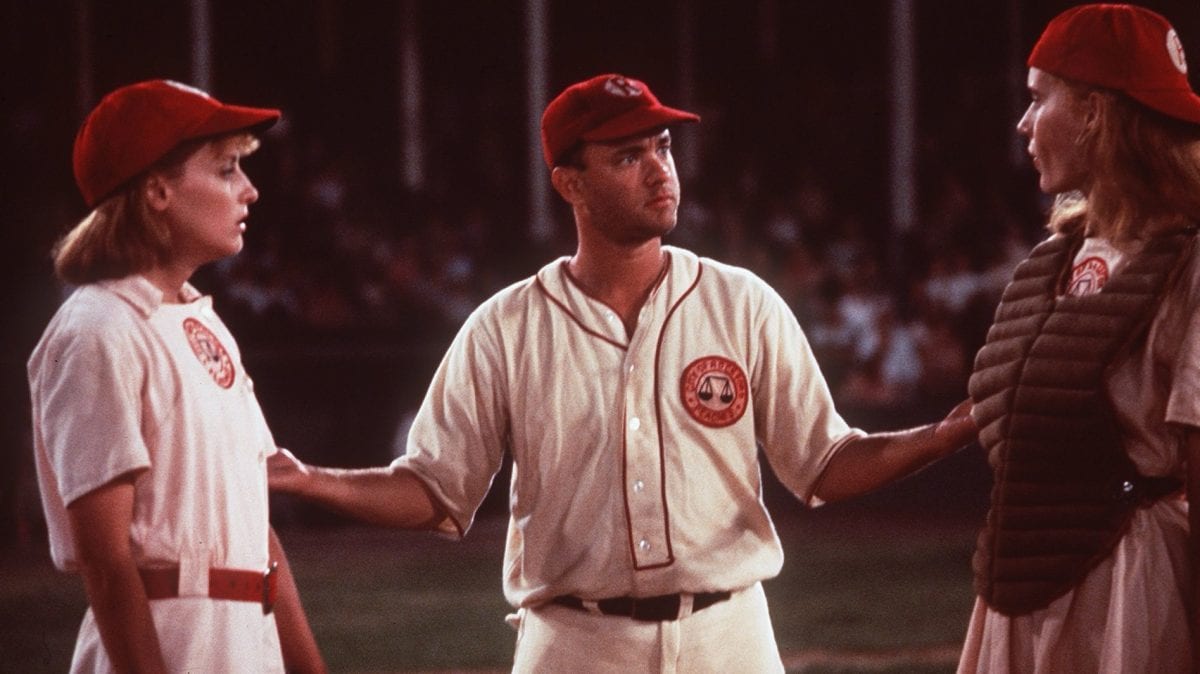
Likewise, in The Preacher’s Wife, Biggs initially accepts Hamilton’s proposal to take over a new church, but this is seen as betrayal by Julia because she believes Biggs is abandoning their congregation by doing this. In Awakenings, when Leonard’s disorder begins to return because his treatment is not working, he becomes somewhat violent and angry towards Dr. Sayer. He feels like Sayer gave him his life back, and then took it away because of his incompetence. In Riding in Cars With Boys, Jason betrays his mother by ratting her out to her policeman father as revenge for making his father leave him because he had a drug addiction and she did not want that to impact Jason.
But, as bad as things get, you can usually count on Marshall’s movies ending on a mostly happy note. Although all of the characters’ challenges have not been resolved, the films usually leave us at a place where they have a newfound positive attitude towards their life. More importantly, the minor antagonist gets a chance to do something good. In Jumping Jack Flash, Terry’s boss is mean to her throughout the movie, but at the end of the film when he accepts a new position and Terry gets his job and his congratulations. In Renaissance Man, Sergeant Cass doesn’t like Bill and bullies him, but when Bill finds out some redeeming information about a cadet who is not liked, he gives it to Cass to make a decision on what to do with it. Cass decides to honor the cadet at his graduation ceremony. In The Preacher’s Wife, greedy land developer Hamilton is inspired by a Bigg’s sermon at the end of the film to work with him to keep the church in place, rather than destroy it to make room for condos.
Focus on the Underprivileged
Marshall was born and raised on the streets of New York in the Bronx. The setting of most of her films is in a big city to reflect Marshall’s familiarity with that type of life, with the exception of Riding in Cars With Boys, and A League of Their Own. For this reason, characters often have to deal with the struggles of living in a big city. These challenges include poverty, crime, lack of sufficient healthcare, and racial discrimination. Characters like Bill Rago in Renaissance Man, Reverend Biggs in The Preacher’s Wife, and Dr. Sayer in Awakenings are in positions where they are trying to help the less fortunate dealing with these problems. In Jumping Jack Flash, Terry isn’t necessarily helping the less fortunate, but she goes out of her way to help anyone who needs it. At the beginning of the films she is giving recipes to people, advice for their love life, and encouragement when needed.
While Marshall’s films are not exactly progressive by today’s standards, they do have moments which focus on gender and racial inequality. In A League of Their Own, no one believes in the women’s baseball league at first, and both the fans and the owners of the league itself treat the women in a chauvinistic manner. They give them sexist demeaning outfits which are inappropriate to wear for playing baseball in, and force them to participate in etiquette classes. In Jumping Jack Flash, many of the male characters don’t take Terry seriously, and they underestimate what she can accomplish. Indeed, many of the male characters in the film are shown as lazy and incompetent, or unwilling to help her. Terry actually gets the most help from other women like the wife of another secret agent, and the former girlfriend of the agent she is trying to help.
Jumping Jack Flash is also noteworthy for the time because it stars an African American woman in a comedy film where she is the one who is saving a straight white man. The role was originally intended for Shelley Long, but changed to Whoopi Goldberg after Marshall took over. Marshall’s other films often have African American characters in important positions. Most of Rago’s class in Renaissance Man is African-American, and Marshall uses these characters to explore issues affecting young African-Americans – namely the reduced number of opportunities they face because of their race. Meanwhile, you have The Preacher’s Wife which has a cast that is all but African-American and deals heavily with issues impacting those who live in a big city. Interestingly, Gregory Hines portrays the minor antagonist in both of these films and his characters are depicted in ways that go against stereotypes. In Renaissance Man he is a strict drill sergeant, but one who is not without compassion and appreciation of fine culture. In The Preacher’s Wife he portrays a wealthy businessman.
The Sudden End of Innocence
Events in Penny Marshall’s life have resulted in her having a complicated relationship with motherhood. From a young age her mother taught her to perform as a dancer. She may have felt that her mother’s control over her at a young age had robbed her of a traditional childhood. Indeed, when she was old enough to attend college, she decided to attend a university as far away as possible. But while attending university, she became pregnant with her daughter and decided to drop out of school in order to raise her. This was a decision that significantly altered Marshall’s life and career trajectory. The influence of these experiences are seen in Marshall’s films in the ways she contrasts age and maturity. In all her films characters are thrust into uncomfortable situations where they have “grow up quickly”.
In both Jumping Jack Flash, and A League of Their Own we see characters become part of something in which they are initially naive participants. In Jumping Jack Flash Terry gets involved in the world of espionage and doesn’t fully realize the dangers until a man she meets is murdered right in front of her eyes. In A League of Their Own, many of the women participating in the baseball league are leaving home for the first time. They have to suddenly deal with leering fans, and life on the road. Characters like Kit want to make a name for themselves, and so they see the opportunity as a way to show what they can do. In many ways, manager Jimmy Dugan goes through a similar transformation. Initially beaten down by his alcoholism he treats the job like a joke and behaves like a child. By the end of the film he has realized the error in his ways and approaches the situation with a whole different perspective.
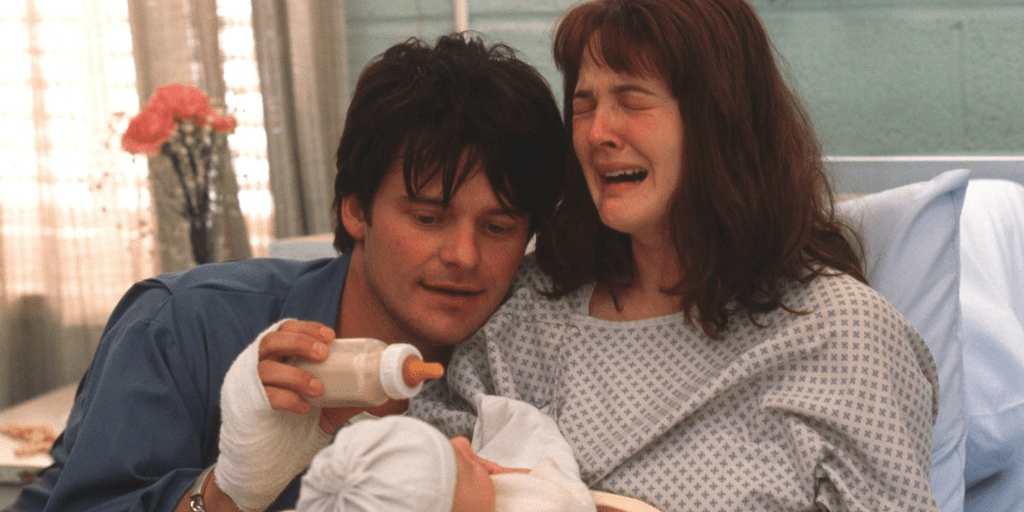
In Riding in Cars With Boys, the main character Bev has a child at a young age, and she is basically unprepared for this type of responsibility. Because Bev becomes a mother unexpectedly, she comes to regret her decisions and her child. She feels that the child took her youth from her. Meanwhile, her son Jason feels the opposite. He feels resentment towards his mother because she is so young and behaves in a way that is almost childish, forcing him to grow up. He has to deal with her immature decisions, and how she is unable to reconcile her relationship with his father like an adult.
Marshall flips age roles of her characters in Big and Awakenings. Big is about a child who wants to be an adult and is suddenly granted his wish. From his new perspective as an adult, he develops a new appreciation of what he had as a child. In Awakenings, the catatonic patients lose years of their lives without realizing it. One of the patients is Leonard, who becomes ill as a child, and is awoken from his condition as an adult. Like the main character in Big, he comes face to face with a reality where he was a child one day, and then an adult the next. Unlike in Big, Leonard can’t have his childhood back. He has to face a reality of losing a majority of his life to his illness, which eventually makes him angry and upset.
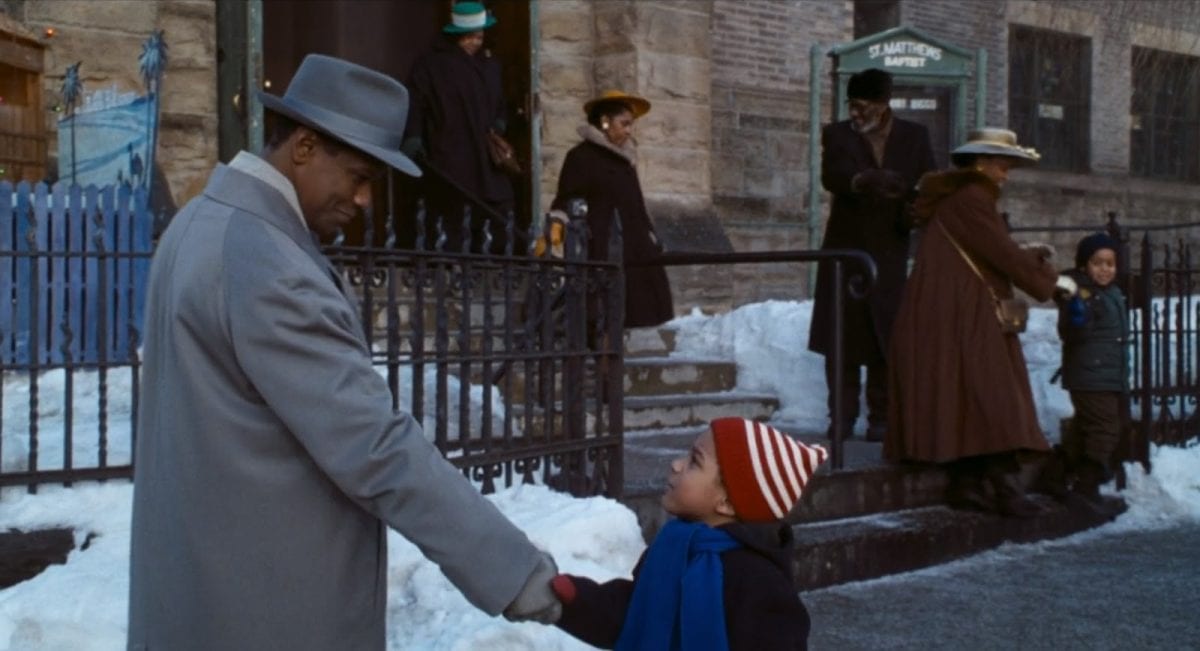
The challenges of growing up are also referenced in Renaissance Man and The Preacher’s Wife. Likewise, a young man who Biggs had worked with to help turn his life around is mistakenly arrested for a crime he did not commit. The young man becomes angry and frustrated due to his situation, but Biggs helps to guide him through the ordeal. In Renaissance Man, the cadets Rago is teaching are all having trouble succeeding in the army because of various personal issues they are dealing with. These cadets are all very young, and yet the issues they are facing back home are all very serious – from abusive parents, to the pressures of joining a gang, to the death of loved ones, and the inability to live up to expectations. For all of them, Rago’s class helps them realize their potential, and this gives them a newfound confidence to approach their career in the army as well as the issues back home.
Interestingly, all of Marshall’s films make a mention of the difficulty of motherhood and/or raising a young child. The inclusion of this type of element is a nod to both Marshall’s personal experience with motherhood, and a continuation of the theme depicting the end of childhood. In Renaissance Man, Rago learns that one of his cadets is going to have a baby. The cadet used to be a football player, but states how he doesn’t want that type of a life for his child because it has only brought him struggle. In Jumping Jack Flash, Terry’s coworker at the beginning of the film is pregnant and is in physical discomfort because of this. The coworker is taking maternity leave, and at one point Terry helps comfort her because she is so upset and frightened about what is going to happen next. In A League of Their Own, one of the players on the team has a young son that she has to bring along as the team travels because she has no one else that can take care of him. In The Preacher’s Wife film Bigg’s son has a best friend who has to go to a foster home because his parents and grandmother are unable to care for him. The thought of a young boy losing his best friend is very tragic, and Biggs is unable to console his son because his own life is so out of control.
Want more Directors’ Trademarks? Check out the last installment in the series:
Directors’ Trademarks: Martin Scorsese








